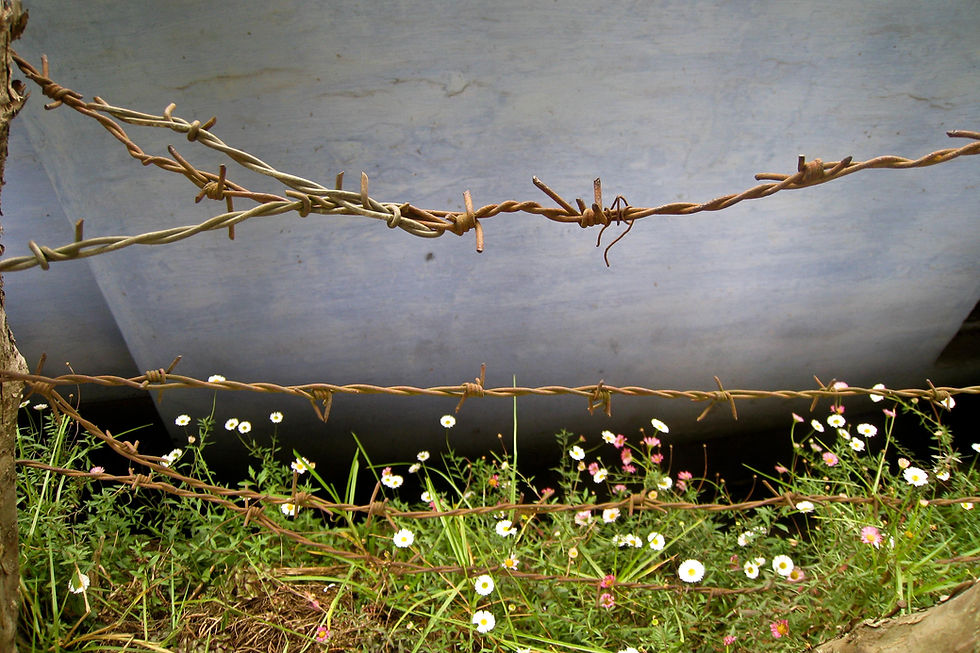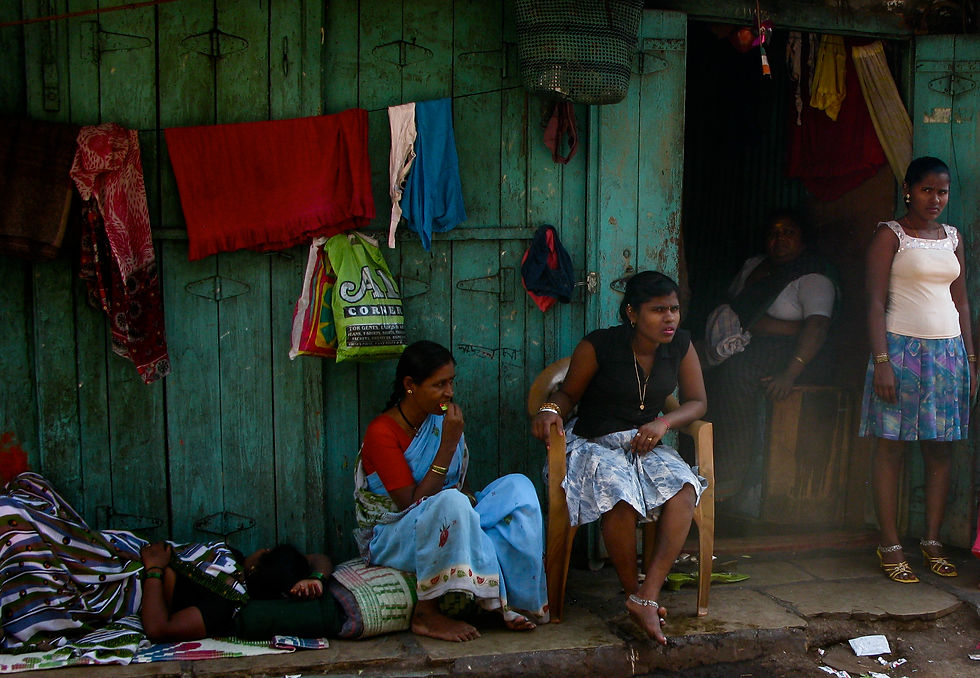Quarterly Newsletter
- Mala Malstead

- Jun 2, 2015
- 7 min read

Rescue: From Bangladesh to Sangli
Cross border trafficking has become increasingly prevalent in recent times with Rohingya minorities fleeing Burma to be stranded in the Andaman Sea by their traffickers. There has been no other time in history when the life of another human being has been as undervalued as it is now. India too has become a hub for cross-border trafficking of women and children particularly from neighbouring countries Nepal and Bangladesh. Traffickers portray a life of abundance in India and lure people into believing their promises by taking advantage of their poverty and unemployment. They come into the country penniless and meet the harsh realities of life living in a foreign country.
Freedom Firm has rescued many young girls who were trafficked to India from Bangladesh in the past seven years. All of their stories are similar; they were trafficked into India on the promise of a good job or a marriage and find themselves in a brothel in India. After they are rescued, the girls spend a few years in a shelter home in India before being repatriated back to their country. Back in their country, they rejoin their families, get married, or begin working. They come back to India when it is time to testify against their perpetrators in court.
In January this year, the team successfully rescued the first verifiable minor girl in Sangli in 6 years. Pari*, 16 years old, was trafficked from Bangladesh. Freedom Firm’s investigators found her in Sangli and decided to launch a raid with police assistance. On the day of the raid, one Freedom Firm investigator posed as Pari’s bogus customer and another stood outside the brothel to direct the police to rescue Pari. When the police arrived, Pari was rescued. Unfortunately, the brothel keeper wasn’t there at the time of the raid.
As they came out of the brothel, a lady from an organization supporting prostitution asked us who we were and why we were taking Pari. A man produced government identity cards for Pari and remarked that she was a major. This claim was proved wrong when a medical verification test showed that she was only 16 years old. The police collected the documents and went to the Law and Crime Branch office where Pari was questioned. The same man brought the brothel keeper to the police station. A First Information Report (F.I.R) was filed against her and she was arrested. Several people came to the police station pleading with the police to release the brothel keeper and offered money to Freedom Firm staff to withdraw the F.I.R. Our staff refused.
Thankfully Pari was not released back to her perpetrators. Today she is at a government shelter home where we hope she will be kept safe. She engages in classes at the home and waits to be repatriated back to her home country.
*Name changed to protect identity

Restoration: Marriages
Marigold flowers and long plantain branches adorn the doorway of a house. Family, friends, and relatives gossip over a meal. Women pamper the soon to be bride applying turmeric paste on her body and decorating her hands with mehndi. The elders of the home ensure the care of every detail of the marriage ceremony.
The bride enjoys being pampered. The rustle of the bangles against her skin excites her. Her thoughts turn towards events of the past when she was bound by the strong chains of slavery, where every hope of happiness was shattered. She raises her hands towards the mirror and smiles as she sees her reflection through the shimmers in her bangles and amazed that such a day as this would ever come. The dark brown mehndi on her hand is a sign that she will be loved by her husband and her mother-in-law. This is the love she has been yearning for, ever since she was sold into a brothel to entertain men.
For an Indian, marriage is a matter of karmic destiny which explains why so much importance is laid on it. For women who are survivors of sex-trafficking, even beyond cultural significance, marriage gives them a sense of belonging and community. Their experience of being abused by men creates a drive in them to belong to someone safe – a person who will treasure, cherish, love, and protect them.
After rescue, girls stay at a shelter home for a season and wait for their release. When they are asked what they will do when they leave the safe but fettered environment of the shelter home, they say ‘ Maim shaadi karunga’ (I will get married ). Few decide to study or work elsewhere before deciding to marry.
Eight girls who were part of Freedom Firm’s aftercare program were married in 2014. Each girl represented a different stage of restoration. Karishma* was Freedom Firm’s first rescue and stayed in the restoration program longer than other girls. She was 13 years old when she was rescued and grew increasingly independent in the following years, supporting herself and her sister. She married last year and is now pregnant with her first child.
Raji*, an artisan at Ruhamah Designs married Shiva from the HIV positive network in Karnataka. Now she is expecting her first child. Maithali* moved to Surat after she was married and delivered her first baby this year. Sajini* who was rescued three times from Nagpur’s red-light area returned back to her family, married a Master’s graduate, and delivered a baby girl this year. Mallika*, rescued in Maharashtra and restored back to her family in West Bengal, was married last year. Kalpana* also from West Bengal married and delivered a baby girl this year. Maira* who married is now living in Coimbatore with her husband. Nazma, a Ruhamah Design's employee married last year and gave birth to a baby girl this March.
These women were trafficked and rescued when they were still children or adolescents and are now independent women, making life choices and becoming wives and mothers. They represent a generation of survivors who have faced loneliness, desperation, sorrow, abuse, fear, and challenges unseen in other women their age. To see them stand with boldness in the face of reality despite the pressures of the past is pure courage. These women now hold power to mold their children’s future and safeguard them from harsh realities they once faced in the assurance that they now belong– belong to someone.
*Names changed to protect identity

Justice: Baijanthibai, Brothel Keeper Posing as Mother
The brothel keepers have a vested interest in applying for the custody of a victim. It’s completely financial. The loss of a young girl from the brothel means a loss of income for the brothel keeper. If they can get custody of the rescued young girl, then they can be trafficked again. This is evident as some of the girls who were given custody to their traffickers by submitting false documents were found again in the red light areas. Brothel keepers and the traffickers are part of a well-organized syndicate that has access to experienced legal professionals. They are aware of the law concerning trafficking and they know how to work within the system. Traffickers use unscrupulous lawyers to apply for custody of a victim.
Baijanthibai, a brothel keeper in Nagpur’s red-light district has applied for the custody of several victims rescued by Freedom Firm. Megha* was rescued several times from the red-light area. On the first occasion after the rescue, she was handed over to Baijanthibai. On the second occasion, she was released by the police based on a falsified medical report. The third time, she was released again into the custody of Baijanthibhai. Megha was rescued a fourth time and is currently at a shelter home. Yet again, Baijanthibai has filed another application for the custody of Megha. Baijanthibai is claiming to be the mother of Megha.
The application is being heard by Chief Judicial Magistrate whereas all the previous applications were heard by the lower court. The judge is currently on holiday and is aware of the application made by Baijanthibai and has hinted to our lawyer that he is not willing to grant custody of Megha to Baijanthibai. Our lawyer has also prepared an application to oppose her custody application and will present it before the court next week.
Sajini* was also rescued three times and handed over to Baijanthibai on one occasion who claimed to be her mother. Since her last rescue, she was transferred to a shelter home in Bombay. From there she was released into the custody of her real parents. Since then, our social workers have done follow up with her and found that she is married and recently she had a child.
Komal* was also rescued twice. After the first rescue, she was released to Baijanthibai who claimed to be her mother. After she was rescued the second time, she was released by the authorities and we do not know where she is at the present time.
Freedom Firm’s legal team closely monitors these applications through local advocates in various cities. Our local advocates go to the court for all the scheduled dates and check with the public prosecutor assigned to the case to see if any applications have been filed. We also collect all the documents related to the applications that have been filed by those seeking custody of the victims, to verify their authenticity. Freedom Firm’s aftercare team collects data from the Home Inquiry Reports which allows us to see if the parents are fit to apply for the custody of the girls. We also see if anyone seeking custody of the girls are brothel keepers and if they are, then we bring that to the attention of the court. We conduct a follow up of all the people applying for custody of the girls to see if they are genuine and verifiable.
If regular follow up is not done, it will put at risk the liberty of the girls as they can be released to a trafficker or brothel keeper who claims to be the girls’ parent or relative. This can result in the girls being sent back to the red light area. It is also in the interest of justice that we regularly follow up with the cases as they slowly move through court. If not, the girls will not be able to receive timely and appropriate legal help which would hinder the progress of the trial which might ultimately lead to the acquittal of the accused.
Pursuing justice is a lengthy process, but it is a process that must be pursued through the courts in order to bring justice to the girls. This is necessary to ensure the victims that the wrongs they suffered do not go unnoticed in the eyes of the law as well as the community. Ultimately when their perpetrators are brought to account, ultimately fewer girls will be trafficked
*Name changed to protect identity








Comments